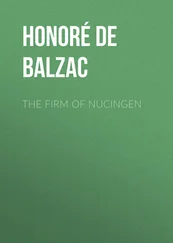Honoré Balzac - Scenes from a Courtesan's Life
Здесь есть возможность читать онлайн «Honoré Balzac - Scenes from a Courtesan's Life» — ознакомительный отрывок электронной книги совершенно бесплатно, а после прочтения отрывка купить полную версию. В некоторых случаях можно слушать аудио, скачать через торрент в формате fb2 и присутствует краткое содержание. Издательство: Иностранный паблик, Жанр: literature_19, foreign_antique, foreign_prose, на английском языке. Описание произведения, (предисловие) а так же отзывы посетителей доступны на портале библиотеки ЛибКат.
- Название:Scenes from a Courtesan's Life
- Автор:
- Издательство:Иностранный паблик
- Жанр:
- Год:неизвестен
- ISBN:нет данных
- Рейтинг книги:4 / 5. Голосов: 1
-
Избранное:Добавить в избранное
- Отзывы:
-
Ваша оценка:
- 80
- 1
- 2
- 3
- 4
- 5
Scenes from a Courtesan's Life: краткое содержание, описание и аннотация
Предлагаем к чтению аннотацию, описание, краткое содержание или предисловие (зависит от того, что написал сам автор книги «Scenes from a Courtesan's Life»). Если вы не нашли необходимую информацию о книге — напишите в комментариях, мы постараемся отыскать её.
Scenes from a Courtesan's Life — читать онлайн ознакомительный отрывок
Ниже представлен текст книги, разбитый по страницам. Система сохранения места последней прочитанной страницы, позволяет с удобством читать онлайн бесплатно книгу «Scenes from a Courtesan's Life», без необходимости каждый раз заново искать на чём Вы остановились. Поставьте закладку, и сможете в любой момент перейти на страницу, на которой закончили чтение.
Интервал:
Закладка:
“What is your name?” she asked the priest when he took leave of her.
“Carlos Herrera; I am a Spaniard banished from my country.”
Esther took his hand and kissed it. She was no longer the courtesan; she was an angel rising after a fall.
In a religious institution, famous for the aristocratic and pious teaching imparted there, one Monday morning in the beginning of March 1824 the pupils found their pretty flock increased by a newcomer, whose beauty triumphed without dispute not only over that of her companions, but over the special details of beauty which were found severally in perfection in each one of them. In France it is extremely rare, not to say impossible, to meet with the thirty points of perfection, described in Persian verse, and engraved, it is said, in the Seraglio, which are needed to make a woman absolutely beautiful. Though in France the whole is seldom seen, we find exquisite parts. As to that imposing union which sculpture tries to produce, and has produced in a few rare examples like the Diana and the Callipyge, it is the privileged possession of Greece and Asia Minor.
Esther came from that cradle of the human race; her mother was a Jewess. The Jews, though so often deteriorated by their contact with other nations, have, among their many races, families in which this sublime type of Asiatic beauty has been preserved. When they are not repulsively hideous, they present the splendid characteristics of Armenian beauty. Esther would have carried off the prize at the Seraglio; she had the thirty points harmoniously combined. Far from having damaged the finish of her modeling and the freshness of her flesh, her strange life had given her the mysterious charm of womanhood; it is no longer the close, waxy texture of green fruit and not yet the warm glow of maturity; there is still the scent of the flower. A few days longer spent in dissolute living, and she would have been too fat. This abundant health, this perfection of the animal in a being in whom voluptuousness took the place of thought, must be a remarkable fact in the eyes of physiologists. A circumstance so rare, that it may be called impossible in very young girls, was that her hands, incomparably fine in shape, were as soft, transparent, and white as those of a woman after the birth of her second child. She had exactly the hair and the foot for which the Duchesse de Berri was so famous, hair so thick that no hairdresser could gather it into his hand, and so long that it fell to the ground in rings; for Esther was of that medium height which makes a woman a sort of toy, to be taken up and set down, taken up again and carried without fatigue. Her skin, as fine as rice-paper, of a warm amber hue showing the purple veins, was satiny without dryness, soft without being clammy.
Esther, excessively strong though apparently fragile, arrested attention by one feature that is conspicuous in the faces in which Raphael has shown his most artistic feeling, for Raphael is the painter who has most studied and best rendered Jewish beauty. This remarkable effect was produced by the depth of the eye-socket, under which the eye moved free from its setting; the arch of the brow was so accurate as to resemble the groining of a vault. When youth lends this beautiful hollow its pure and diaphanous coloring, and edges it with closely-set eyebrows, when the light stealing into the circular cavity beneath lingers there with a rosy hue, there are tender treasures in it to delight a lover, beauties to drive a painter to despair. Those luminous curves, where the shadows have a golden tone, that tissue as firm as a sinew and as mobile as the most delicate membrane, is a crowning achievement of nature. The eye at rest within is like a miraculous egg in a nest of silken wings. But as time goes on this marvel acquires a dreadful melancholy, when passions have laid dark smears on those fine forms, when grief had furrowed that network of delicate veins. Esther’s nationality proclaimed itself in this Oriental modeling of her eyes with their Turkish lids; their color was a slate-gray which by night took on the blue sheen of a raven’s wing. It was only the extreme tenderness of her expression that could moderate their fire.
Only those races that are native to deserts have in the eye the power of fascinating everybody, for any woman can fascinate some one person. Their eyes preserve, no doubt, something of the infinitude they have gazed on. Has nature, in her foresight, armed their retina with some reflecting background to enable them to endure the mirage of the sand, the torrents of sunshine, and the burning cobalt of the sky? or, do human beings, like other creatures, derive something from the surroundings among which they grow up, and preserve for ages the qualities they have imbibed from them? The great solution of this problem of race lies perhaps in the question itself. Instincts are living facts, and their cause dwells in past necessity. Variety in animals is the result of the exercise of these instincts.
To convince ourselves of this long-sought-for truth, it is enough to extend to the herd of mankind the observation recently made on flocks of Spanish and English sheep which, in low meadows where pasture is abundant, feed side by side in close array, but on mountains, where grass is scarce, scatter apart. Take these two kinds of sheep, transfer them to Switzerland or France; the mountain breeds will feed apart even in a lowland meadow of thick grass, the lowland sheep will keep together even on an alp. Hardly will a succession of generations eliminate acquired and transmitted instincts. After a century the highland spirit reappears in a refractory lamb, just as, after eighteen centuries of exile, the spirit of the East shone in Esther’s eyes and features.
Her look had no terrible fascination; it shed a mild warmth, it was pathetic without being startling, and the sternest wills were melted in its flame. Esther had conquered hatred, she had astonished the depraved souls of Paris; in short, that look and the softness of her skin had earned her the terrible nickname which had just led her to the verge of the grave. Everything about her was in harmony with these characteristics of the Peri of the burning sands. Her forehead was firmly and proudly molded. Her nose, like that of the Arab race, was delicate and narrow, with oval nostrils well set and open at the base. Her mouth, fresh and red, was a rose unblemished by a flaw, dissipation had left no trace there. Her chin, rounded as though some amorous sculptor had polished its fulness, was as white as milk. One thing only that she had not been able to remedy betrayed the courtesan fallen very low: her broken nails, which needed time to recover their shape, so much had they been spoiled by the vulgarest household tasks.
The young boarders began by being jealous of these marvels of beauty, but they ended by admiring them. Before the first week was at an end they were all attached to the artless Jewess, for they were interested in the unknown misfortunes of a girl of eighteen who could neither read nor write, to whom all knowledge and instruction were new, and who was to earn for the Archbishop the triumph of having converted a Jewess to Catholicism and giving the convent a festival in her baptism. They forgave her beauty, finding themselves her superiors in education.
Esther very soon caught the manners, the accent, the carriage and attitudes of these highly-bred girls; in short, her first nature reasserted itself. The change was so complete that on his first visit Herrera was astonished as it would seem – and the Mother Superior congratulated him on his ward. Never in their existence as teachers had these sisters met with a more charming nature, more Christian meekness, true modesty, nor a greater eagerness to learn. When a girl has suffered such misery as had overwhelmed this poor child, and looks forward to such a reward as the Spaniard held out to Esther, it is hard if she does not realize the miracles of the early Church which the Jesuits revived in Paraguay.
Читать дальшеИнтервал:
Закладка:
Похожие книги на «Scenes from a Courtesan's Life»
Представляем Вашему вниманию похожие книги на «Scenes from a Courtesan's Life» списком для выбора. Мы отобрали схожую по названию и смыслу литературу в надежде предоставить читателям больше вариантов отыскать новые, интересные, ещё непрочитанные произведения.
Обсуждение, отзывы о книге «Scenes from a Courtesan's Life» и просто собственные мнения читателей. Оставьте ваши комментарии, напишите, что Вы думаете о произведении, его смысле или главных героях. Укажите что конкретно понравилось, а что нет, и почему Вы так считаете.












